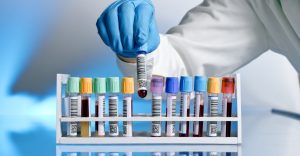Aspirin has long been a staple in medical treatments due to its anti-inflammatory properties.
Others are reading now
Aspirin, known scientifically as acetylsalicylic acid, has long been a staple in medical treatments due to its anti-inflammatory properties.
Reduses Inflammatory Response
Historically, compounds similar to aspirin were used by ancient civilizations for pain and fever relief. In the 19th century, the active ingredient in willow bark, salicin, was identified, leading to the development of modern aspirin. Today, it is a key tool in preventing heart attacks and strokes.
A recent study presented at the SLEEP 2024 conference in Houston has uncovered a novel use for low-dose aspirin, according to Alimente. Researchers discovered that low doses of aspirin can reduce inflammatory responses associated with sleep deprivation. This breakthrough could have significant implications for managing the health impacts of insufficient sleep.
Can Lead to New Therapies
The study, led by Dr. Larissa Engert from Beth Israel Deaconess Medical Center and Harvard Medical School, involved 46 healthy adults who participated in a randomized controlled trial. The trial used three different protocols: sleep restriction with aspirin, sleep restriction with a placebo, and normal sleep with a placebo. Each protocol included a 14-day at-home phase followed by an 11-day hospital stay.
Also read
Participants in the sleep restriction with aspirin group took low doses of aspirin during both phases. Results showed that aspirin reduced inflammation markers such as interleukin-6 and C-reactive protein and improved sleep latency and efficiency during recovery.
Dr. Engert noted that these findings suggest aspirin could mitigate the inflammatory effects of sleep restriction, potentially leading to new therapies targeting these pathways without the side effects commonly associated with aspirin, such as bleeding or stroke.








